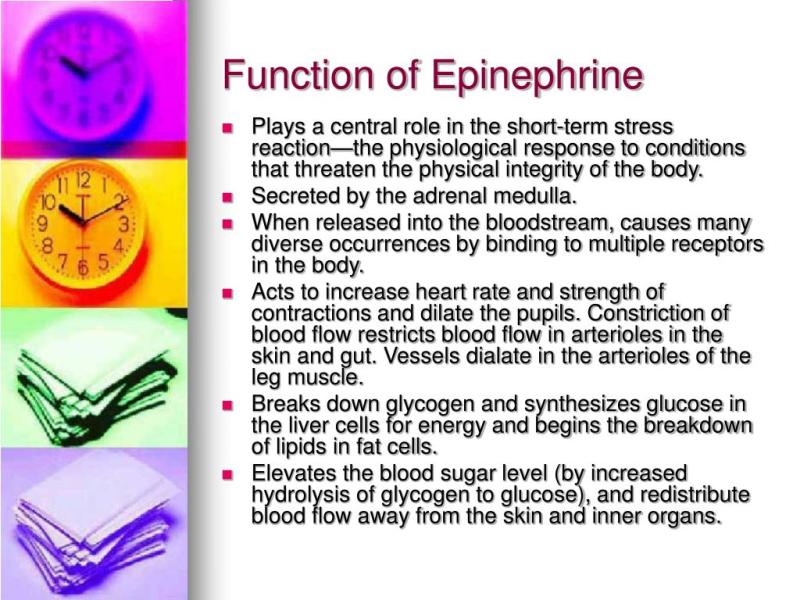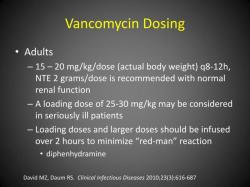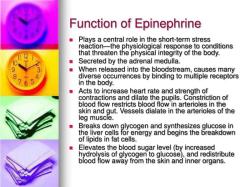What is the main function of the epinephrine?
Epinephrine, also known as adrenaline, serves as a crucial hormone and neurotransmitter in the body, playing several key roles:
Fight or Flight Response: Epinephrine is integral to the body's response to stress or danger. When the brain perceives a threat, the adrenal glands release epinephrine into the bloodstream, triggering the "fight or flight" response. This response increases heart rate, blood pressure, and blood flow to muscles, preparing the body to respond quickly to the perceived threat.
Vasoconstriction and Blood Pressure Regulation: Epinephrine causes blood vessels to constrict, which helps redirect blood flow to vital organs like the heart and brain. This vasoconstriction also plays a role in regulating blood pressure during times of stress.
Bronchodilation: It relaxes the muscles in the airways, leading to the dilation of bronchioles in the lungs. This action increases airflow and allows more oxygen to enter the lungs, aiding in oxygenation during physical exertion or stress.
Glucose Release: Epinephrine prompts the liver to release glucose into the bloodstream, providing a quick source of energy for the body's increased demands during stressful situations.
Metabolic Effects: It can affect metabolism, increasing the breakdown of fats for energy and sparing glycogen stores in the liver and muscles.
Neurotransmitter Function: In the nervous system, epinephrine acts as a neurotransmitter, facilitating communication between nerve cells. It can affect mood, arousal, and cognitive function.
Overall, epinephrine's primary function is to prepare the body for immediate action in response to stress, ensuring the body has the necessary resources and physiological changes to cope with challenging situations or threats. Its effects are rapid and are aimed at enhancing physical performance and readiness during times of stress or emergency.
Epinephrine, also commonly known as adrenaline, is a hormone and neurotransmitter that plays a crucial role in the body's "fight-or-flight" response. It is produced by the adrenal glands, located near the kidneys, and is released in response to stress, fear, or danger.
Primary Function of Epinephrine
The primary function of epinephrine is to prepare the body for immediate action in stressful or dangerous situations. It achieves this by causing a range of physiological changes that enhance the body's ability to cope with the threat.
How Epinephrine Functions in the Body
When epinephrine is released into the bloodstream, it travels to various tissues and organs in the body, where it binds to receptors and triggers a cascade of effects. These effects include:
Increased Heart Rate and Contractility: Epinephrine stimulates the heart to beat faster and with more force, increasing blood flow to the muscles and delivering oxygen and nutrients more efficiently.
Dilated Airways: Epinephrine relaxes the smooth muscles in the airways, making breathing easier and increasing oxygen intake.
Blood Vessel Constriction: Epinephrine constricts blood vessels in non-essential tissues, diverting blood flow to the muscles and vital organs.
Increased Glucose Release: Epinephrine triggers the release of glucose from the liver and glycogen stores, providing energy for immediate action.
Heightened Alertness and Senses: Epinephrine enhances alertness, focus, and sensory perception, allowing for better reaction times and decision-making in dangerous situations.
Role of Epinephrine in Physiological Responses
Epinephrine plays a critical role in various physiological responses, including:
Fight-or-Flight Response: Epinephrine is the central hormone responsible for the body's fight-or-flight response, preparing the body for physical exertion, increased energy production, and enhanced sensory perception.
Exercise and Stress Response: Epinephrine is released during exercise to provide the body with the necessary fuel and energy for physical activity. It also plays a role in the body's response to stress, helping to cope with mental and emotional demands.
Blood Pressure Regulation: Epinephrine can contribute to blood pressure regulation by constricting blood vessels and increasing heart rate.
Blood Sugar Regulation: Epinephrine helps maintain blood sugar levels by stimulating the release of glucose from the liver and glycogen stores.
Allergic Reactions: Epinephrine is used as a medication to treat severe allergic reactions, known as anaphylaxis, by counteracting the effects of histamine and other inflammatory mediators.
In summary, epinephrine is a versatile hormone and neurotransmitter that plays a vital role in the body's physiological responses to stress, exercise, and dangerous situations. Its ability to mobilize the body's resources and enhance physical performance makes it essential for survival and adaptation.











